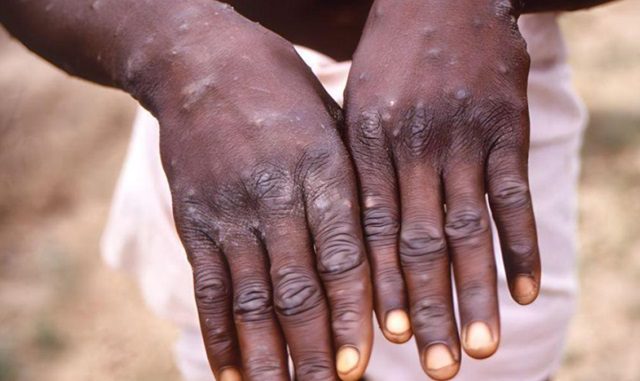BTN News: The World Health Organization (WHO) has taken a stance of reassurance in response to the recent mpox (formerly known as monkeypox) outbreak in Africa, which has also seen a single case emerge in Europe. As global concerns rise, WHO officials aim to quell alarmist narratives and clarify misconceptions about the virus, its transmission, and the measures required to control its spread. The outbreak, which has sparked anxiety due to its rapid spread in parts of Africa and the detection of a new variant outside the continent, is being closely monitored, yet WHO experts stress that the situation is under control and does not warrant panic.
In Europe, Sweden was the first country to report a case of the new mpox variant, clade 1b, outside of Africa. However, the European Centre for Disease Prevention and Control (ECDC) has assessed the risk of a significant outbreak on the continent as “very low to low.” WHO Europe Director Hans Kluge emphasized that mpox is not comparable to COVID-19 in terms of transmission and impact. He pointed out that the virus is primarily spread through skin-to-skin contact, especially during sexual activity involving infected individuals with visible mpox lesions. Kluge reassured the public that the situation is under control and that the tools to eliminate the virus from Europe are well known, though he acknowledged past failures in fully eradicating it due to insufficient commitment and resources from governments.
The mpox virus was first identified in the late 1950s, with the initial human case recorded two decades later. Unlike the COVID-19 pandemic, mpox is not spread through airborne particles, which is why the use of face masks is not recommended. Instead, the focus is on preventing skin-to-skin contact with infected individuals. Despite the WHO’s declaration of a health alert due to the fast-spreading clade 1b variant in Africa and the case in Sweden, experts believe that stringent monitoring and swift action can prevent a larger outbreak.
The newly identified clade 1b variant is of particular concern due to its enhanced transmissibility and more severe symptoms compared to the clade 2 variant, which caused significant outbreaks in 2022 across Africa, Europe, North America, and other regions. Europe has seen around 27,000 cases of mpox since 2022, with a hundred new cases of clade 2 being diagnosed monthly. WHO officials are concerned that the more contagious and severe clade 1b could lead to increased cases if not swiftly contained.
In Latin America, no cases of the clade 1b variant have been reported yet, but the declaration of an international health alert has prompted various countries in the region to enhance their epidemiological surveillance and readiness. For instance, Venezuela has implemented a rigorous epidemiological monitoring plan, requiring travelers to report their health status upon entry for early detection of potential cases. Similarly, Colombia has strengthened its surveillance efforts, issuing specific guidelines for healthcare workers and high-risk groups. Other countries, including Mexico, Peru, Paraguay, El Salvador, Nicaragua, and Puerto Rico, have also adopted preventive measures and heightened vigilance.
In response to the escalating situation in Africa, particularly the Democratic Republic of the Congo, where the mpox virus is endemic, Médecins Sans Frontières (MSF) has called for urgent vaccine donations. MSF has urged countries with vaccine reserves and no active outbreaks to send their doses to Africa within two weeks, emphasizing the critical need to halt the chain of transmission and prevent further infections and deaths. Cristina Jauset, MSF’s head of vaccination and epidemic response, highlighted the dire situation in Congo, where the virus is spreading rapidly, and the country’s vaccination campaign is on hold due to the lack of vaccine supply. MSF estimates that Africa needs around 10 million vaccine doses, with at least 3 million required for the Democratic Republic of the Congo alone.
Mpox, caused by the monkeypox virus, presents with flu-like symptoms and skin lesions that progress from papules to vesicles. Although it has historically caused small, isolated outbreaks, the recent emergence of the clade 1b variant, with its different transmission dynamics, has led to a significant increase in cases. In Congo, for example, the number of cases from January to August this year has doubled compared to the same period in 2023. Jauset stressed that the limited vaccine supply and high costs are major challenges, urging manufacturers like Bavarian Nordic to lower prices to make vaccines more accessible.
As the world grapples with this new health threat, the WHO’s message is clear: vigilance and timely action are crucial. While the situation is serious, it is manageable with the right strategies in place. Global cooperation, particularly in vaccine distribution, is essential to preventing the further spread of mpox and protecting vulnerable populations, especially in regions like Africa where healthcare resources are already stretched thin. The focus now is on ensuring that the lessons learned from past outbreaks are applied to prevent a repeat of history and safeguard public health on a global scale.


